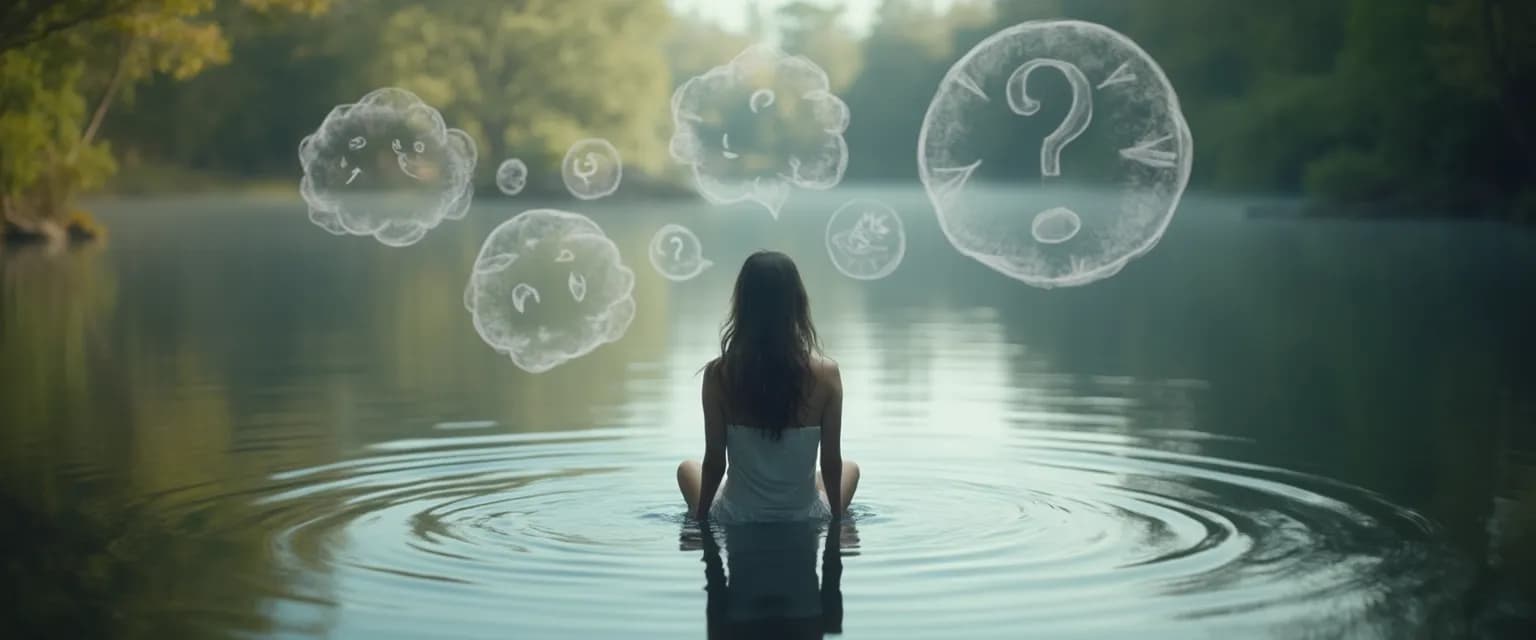7 Unexpected Evidence of Self-Awareness You Might Not Recognize
Ever catch yourself pausing before responding to criticism or weighing multiple perspectives before making a decision? These subtle behaviors might be powerful evidence of self-awareness that you've been overlooking. While many associate self-awareness with explicit self-reflection practices, the truth is that evidence of self-awareness often shows up in everyday moments we rarely give ourselves credit for.
Self-awareness—that invaluable ability to observe our thoughts, feelings, and behaviors objectively—forms the foundation of emotional intelligence. The best evidence of self-awareness isn't always found in dramatic moments of insight but in the small, consistent ways we navigate daily life. Recognizing these signs of emotional resilience can help us leverage this psychological strength for greater personal growth.
Let's explore seven unexpected indicators that you might be more self-aware than you realize, and how to nurture these qualities for continued emotional development.
Everyday Evidence of Self-Awareness in Your Communication Style
The way you communicate offers significant evidence of self-awareness, particularly in challenging conversations. If you regularly pause before responding to heated comments, that's a sign your self-awareness is actively working—you're creating space between stimulus and response.
Another powerful indicator appears in your language patterns. Using "I" statements ("I feel frustrated when...") rather than accusatory "you" statements demonstrates you recognize the boundary between your emotions and others' actions—a key evidence of self-awareness in communication.
When faced with confusing information, do you ask clarifying questions instead of making assumptions? This habit reveals you're aware of the limitations of your perspective—a subtle but significant sign of confident communication.
Perhaps most telling is how you receive feedback. If you can listen without immediately defending yourself, separating constructive criticism from your sense of self-worth, you're displaying remarkable evidence of self-awareness that many people struggle to achieve.
Behavioral Evidence of Self-Awareness in Decision-Making
Your decision-making process offers rich evidence of self-awareness worth celebrating. Do you notice when you're making choices from a place of stress versus calm? This emotional check-in demonstrates you understand how your internal state affects outcomes.
Another indicator appears when you recognize recurring patterns in your decisions. If you can identify your typical reactions ("I always rush into decisions when I'm excited"), you're displaying valuable evidence of self-awareness about your behavioral tendencies.
Self-aware individuals also demonstrate an ability to identify when personal biases might be influencing their choices. If you catch yourself thinking, "Am I avoiding this option because it's genuinely wrong for me, or because it makes me uncomfortable?" you're practicing a sophisticated form of self-awareness.
Additionally, seeking diverse perspectives when uncertain shows you recognize the limitations of your viewpoint—a humble yet powerful approach to managing decision anxiety.
Harnessing Your Evidence of Self-Awareness for Personal Growth
Now that you recognize these signs in yourself, how can you strengthen these self-awareness indicators? Start by celebrating these qualities rather than taking them for granted—acknowledging evidence of self-awareness reinforces these positive patterns.
To further develop these traits, practice the "pause and reflect" technique during emotionally charged moments. This simple practice creates space for your self-awareness to activate before your reactive mind takes over.
Another effective evidence of self-awareness growth strategy involves curiosity rather than judgment. When you notice yourself reacting strongly to something, ask "What's happening here?" instead of "Why am I overreacting?" This subtle shift promotes exploration rather than criticism.
Remember that self-awareness flourishes in supportive environments. Share your observations with trusted friends who can offer additional perspectives on your blind spots, creating a feedback loop that enhances your self-awareness.
The journey toward deeper self-awareness isn't about perfection—it's about progress. By recognizing the evidence of self-awareness you already demonstrate in daily life, you've taken an important step toward leveraging this powerful skill. These subtle indicators aren't just interesting observations; they're the building blocks for greater emotional intelligence, better relationships, and more authentic living.




